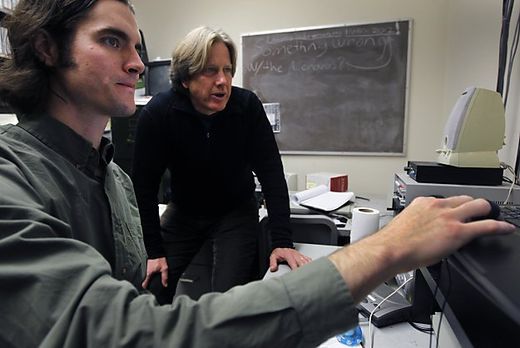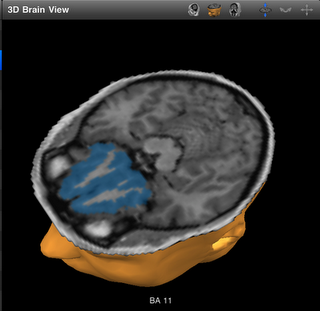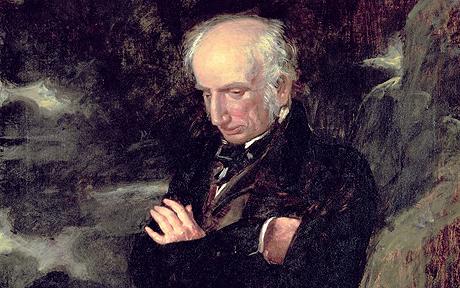
© Paul Chinn / The ChronicleGraduate student Craig Anderson (left) and psychology professor Dacher Keltner conducts research on happiness in Keltner's UC Berkeley lab on Thursday, Dec. 15, 2011.
It turns out you don't have to be miserable during the holidays.
That's now scientifically proven by studies, say UC Berkeley scientists who do those studies.
These wise men and women have come up with quantifiable, tested data showing that with little more than an attitude boost, anyone can get through the toughest of holiday times with not just smiles on their faces, but real warmth in their hearts.
That goes for all those encounters with father-in-laws who could never stand your face, nephews who smash your favorite platter just to hear it shatter and sisters who think you're a loser. Or even cousins fresh out of prison for the New Year.
It's all about concentrating on the things in our lives that work well and being thankful for them, then tossing in a heaping helping of compassion, say the goodness-minded folks at the Greater Good Science Center.
Carrying on nice family rituals, religious or not, that are comforting and foster pleasant togetherness also goes a long way, they say.
Comment: When facing the holiday stress, just take a few minutes to practice the very simple but extremely effective breathing and meditation techniques of the
Éiriú Eolas program. In fact, since you will feel the results immediately, you might decide to practice it throughout the year's stressful moments, so that with your vagus nerve active, you can feel in your life the happiness the researches above are talking about.




Comment: When facing the holiday stress, just take a few minutes to practice the very simple but extremely effective breathing and meditation techniques of the Éiriú Eolas program. In fact, since you will feel the results immediately, you might decide to practice it throughout the year's stressful moments, so that with your vagus nerve active, you can feel in your life the happiness the researches above are talking about.